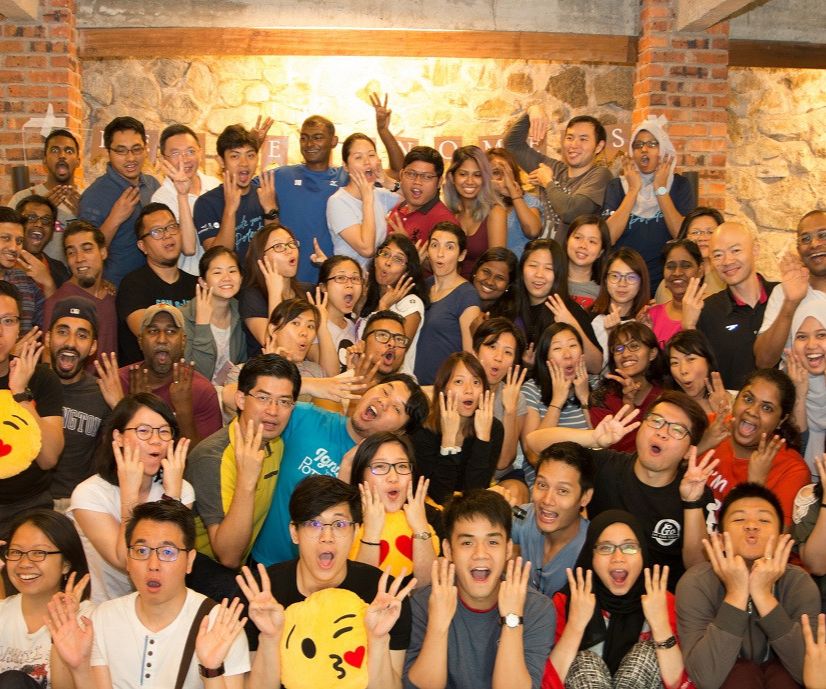Coworking and the Gig Economy: How Shared Spaces Are Changing the Way We Work

Photo by Nisriina Aisy @ Pixabay
Are you tired of working from home or in coffee shops? Discover how coworking spaces are revolutionising the way we work in the gig economy. In this article, we'll explore the rise of shared spaces and their impact on freelancers and remote workers. From the flexibility and freedom they offer to the collaborative environment they foster, coworking spaces are changing the game. Join us as we delve into the benefits and challenges of navigating the gig economy in these innovative workspaces.
The Rise of Coworking: A Solution for the Gig Economy
Coworking spaces can provide you with a flexible and collaborative environment where you can work alongside other freelancers and independent contractors, contributing to the rise of coworking as a solution for the gig economy.
The gig economy is characterised by the increasing number of people who work independently, taking on short-term projects or freelance work. These individuals often do not have a fixed office space and may struggle to find a suitable environment to work in. Coworking spaces have emerged as a practical solution, offering freelancers and independent contractors a shared workspace that meets their needs.

One of the main advantages of coworking spaces is the flexibility they provide. You have the freedom to choose when and where you work, without the constraints of a traditional office. This flexibility is especially valuable for gig economy workers who often have irregular schedules or prefer to work outside of the typical 9-to-5 routine.
Additionally, coworking spaces offer a variety of amenities, such as high-speed internet, meeting rooms, and communal areas, which can enhance your productivity and professional image.
Another key benefit of coworking spaces is the opportunity for collaboration. Working alongside other freelancers and independent contractors allows you to network and connect with professionals from different industries.
This can lead to valuable partnerships, knowledge sharing, and increased business opportunities. In a coworking space, you are surrounded by like-minded individuals who understand the challenges and rewards of the gig economy. This sense of community can provide support and motivation, reducing feelings of isolation that can sometimes come with working independently.
This may interest you: Flexible Workplace: Co-working Spaces Enhance Performance
Furthermore, coworking spaces often host events and workshops, providing additional learning and development opportunities. These events allow you to expand your skill set, stay up-to-date with industry trends, and gain insights from experts in various fields. The collaborative nature of coworking spaces fosters a culture of continuous learning and growth.
Redefining the Traditional Office: How Shared Spaces Are Reshaping Work
Are you ready to discover how shared spaces are reshaping work and redefining the traditional office? Shared spaces have revolutionised the way we work by offering flexible and collaborative environments that cater to the needs of modern professionals. Here are five ways in which shared spaces are transforming the workplace:
- Increased flexibility: Shared spaces allow you to work whenever and wherever you want. Say goodbye to the 9-to-5 routine and embrace a more flexible work schedule that suits your lifestyle.
- Cost-effective solution: Shared spaces offer an affordable alternative to traditional office spaces. You can avoid the high costs of renting or maintaining a dedicated office and only pay for the space and services you actually use.
- Networking opportunities: Shared spaces bring together professionals from various industries and backgrounds under one roof. This creates a vibrant community where you can connect, collaborate, and expand your professional network.
- Enhanced productivity: Shared spaces are designed to promote productivity and creativity. With amenities such as comfortable workstations, high-speed internet, and access to meeting rooms, you can focus on your work and accomplish more in less time.
- Work-life balance: Shared spaces often provide amenities like wellness rooms, relaxation areas, and on-site gyms. These offerings are aimed at helping you achieve a better work-life balance and take care of your well-being.
Shared spaces have truly transformed the traditional office, offering a new way of working that is flexible, cost-effective, and fosters collaboration. Embrace the changing landscape of work and experience the benefits of shared spaces for yourself.
Collaborative Spaces: Fostering Innovation and Networking in the Gig Economy
If you want to foster innovation and expand your professional network in the gig economy, collaborative spaces offer the perfect opportunity to do so. These shared workspaces are more than just a place to plug in your laptop and get to work. They are vibrant communities where freelancers, entrepreneurs, and remote workers come together to collaborate, share ideas, and network.
Collaborative spaces provide an environment that encourages creativity and innovation. Surrounded by like-minded individuals from various industries, you have the chance to gain fresh perspectives and insights that can lead to breakthrough ideas. The open layout and flexible seating arrangements foster collaboration and the exchange of knowledge, allowing you to tap into the collective intelligence of the community.

Read more: Are Open-Plan Offices All They Were Hyped To Be?
Furthermore, collaborative spaces offer ample networking opportunities. In these spaces, you have the chance to connect with professionals from different backgrounds, expanding your network and potentially opening doors to new clients or partnerships. The communal areas, such as shared kitchens or lounges, provide a casual setting where conversations can flow naturally, leading to valuable connections and collaborations.
Flexibility and Freedom: The Benefits of Coworking for Freelancers
When you join a coworking space, you'll experience a multitude of benefits that offer freelancers flexibility and freedom in their work.
Here are five ways coworking spaces can benefit freelancers like yourself:
- Flexible hours: Coworking spaces are often open 24/7, allowing you to work whenever it suits you best. Say goodbye to the constraints of traditional office hours and embrace a schedule that aligns with your productivity peaks.
- Work-life balance: With a coworking space, you can separate your professional and personal life more easily. No more distractions at home or the feeling of isolation in a traditional office. Enjoy the best of both worlds by having a dedicated workspace while still being able to maintain a healthy work-life balance.
- Networking opportunities: Coworking spaces bring together professionals from various industries. This environment fosters collaboration and networking, allowing you to expand your professional network, find potential clients, and gain valuable insights from fellow freelancers.
- Reduced costs: Renting a traditional office space can be costly, especially for freelancers. Coworking spaces offer an affordable alternative, as you only pay for the workspace you need. Additionally, shared amenities like high-speed internet, meeting rooms, and kitchen facilities are often included in the membership fee.
- Increased productivity: Working in a coworking space can boost your productivity. The energetic atmosphere, surrounded by other motivated freelancers, can inspire you to stay focused and accomplish more in less time.

Challenges and Considerations: Navigating the Gig Economy in Shared Workspaces
As you navigate the gig economy in Miami office space, it is important to be aware of the challenges and considerations that may arise. While coworking spaces offer numerous benefits for freelancers, there are also unique obstacles that need to be overcome.
One challenge is the lack of privacy. In a shared workspace, you may be surrounded by other individuals working on different projects. This can make it difficult to concentrate and maintain confidentiality. Additionally, since coworking spaces often have an open layout, it can be challenging to have private conversations or meetings.
Another consideration is the potential for competition. In a shared workspace, you are surrounded by other freelancers who may be in the same industry or offer similar services. This can lead to a sense of competition and the need to differentiate yourself from others.
Furthermore, coworking spaces may not always offer the stability and consistency that a traditional office provides. There may be limited availability of workstations, fluctuating noise levels, or unexpected changes in the working environment.
Supplementary reading: Top 10 Ways To Create A Lively Workspace

To navigate these challenges, it is important to establish boundaries and communicate effectively with others in the shared space. Utilise noise-canceling headphones or designated quiet areas to minimise distractions. Additionally, networking and building relationships with other freelancers can lead to collaboration opportunities rather than competition.
Conclusion
In conclusion, coworking spaces have emerged as a valuable solution for the gig economy, redefining the traditional office and reshaping the way we work. These collaborative spaces not only foster innovation and networking but also provide freelancers with flexibility and freedom. However, navigating the gig economy in shared workspaces does come with its challenges and considerations. Overall, coworking offers a dynamic and supportive environment for freelancers, enabling them to thrive in this ever-evolving work landscape.
Be sure to check out the media below:
Leaderonomics.com is an advertisement-free website. Your continuous support and trust in us allow us to curate, deliver and upkeep the maintenance of our website. When you support us, you enable millions to continue reading for free on our website. Will you give it today? Click here to support us.
Functional
Tags: A Day In The Life, Alignment & Clarity, Be A Leader, Building Functional Competencies, Business Management
Julia Kesprov is a seasoned business writer and thought leader with over 8 years of experience in the corporate world. With a passion for simplifying complex concepts and making them accessible to a wide audience, he has become a trusted voice in the field of business and finance.






